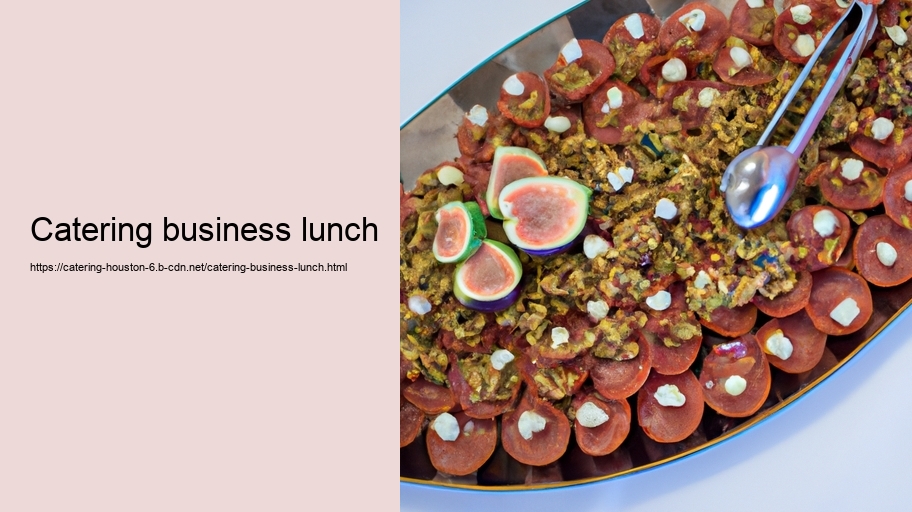A catering business lunch is not merely a meal; it's an experience that can define the tone of a corporate event, seal deals, foster collaborations, and leave lasting impressions. When orchestrating such an occasion, attention to detail is paramount—the ambiance must be professional yet inviting, the menu thoughtfully crafted, and service impeccably executed. In this essay, we delve into the nuances of hosting a successful catering business lunch that both satisfies palates and achieves corporate objectives.
Firstly, the essence of any catering business lunch lies in its ability to facilitate interaction among professionals in a setting that is conducive to conversation and networking. The environment should strike a balance between formality and ease. This can be achieved through elegant table settings with comfortable seating arrangements that encourage guests to engage freely with one another. Ambient music at just the right volume can set the mood without overpowering dialogue—demonstrating how even auditory details play a role in crafting the perfect business luncheon atmosphere.
At the heart of it all is, undoubtedly, the cuisine. A catered business lunch calls for a menu that caters to diverse tastes while maintaining sophistication. It's essential for caterers to offer an array of dishes that accommodate dietary restrictions and preferences—vegetarian, vegan, gluten-free options are no longer mere considerations but necessities in today’s culinary landscape. Yet amidst these requirements lies an opportunity for creativity; modern fusion dishes or regional specialties can surprise guests with delightful flavors while still aligning with health-conscious trends.
Presentation also carries weight when serving food at professional gatherings. Meals should be plated artistically—a feast for the eyes as well as for taste buds—without compromising on portion sizes or practicality of consumption. After all, attendees should feel satiated but not overindulged so they remain attentive during post-lunch discussions or presentations.
Service is another pillar critical to the success of such events. The staff appointed to manage a catering business lunch need not only be skilled in food handling but also possess knowledge about each dish served so they may answer queries confidently—an informed server reflects well on both caterer and host alike. Moreover, tactful timing when delivering courses ensures that guests aren’t rushed through their meals nor left waiting too long between them.
Attention must also be paid to customization options which allow clients to tailor their event according to specific needs or themes. Whether it’s branding napkins with company logos or integrating corporate colors into decor elements—all contribute towards making a luncheon memorable and reflective of the company’s identity.
Lastly comes sustainability—an increasingly important aspect within any sector including food service operations like catering businesses lunches where waste management has become key concern amongst environmentally conscious clientele who prefer eco-friendly disposables compostable utensils alongside locally sourced ingredients minimize carbon footprint associated with their dining experiences.
In conclusion assembling successful catering business lunches transcends mere sustenance—it's about creating harmonious symphony comprised carefully chosen components from ambiance tailored menus exceptional staff cooperative service personalized touches sustainable practices together which work concert elevate ordinary meal into extraordinary gathering fostering connections propelling forward aspirations those involved.
